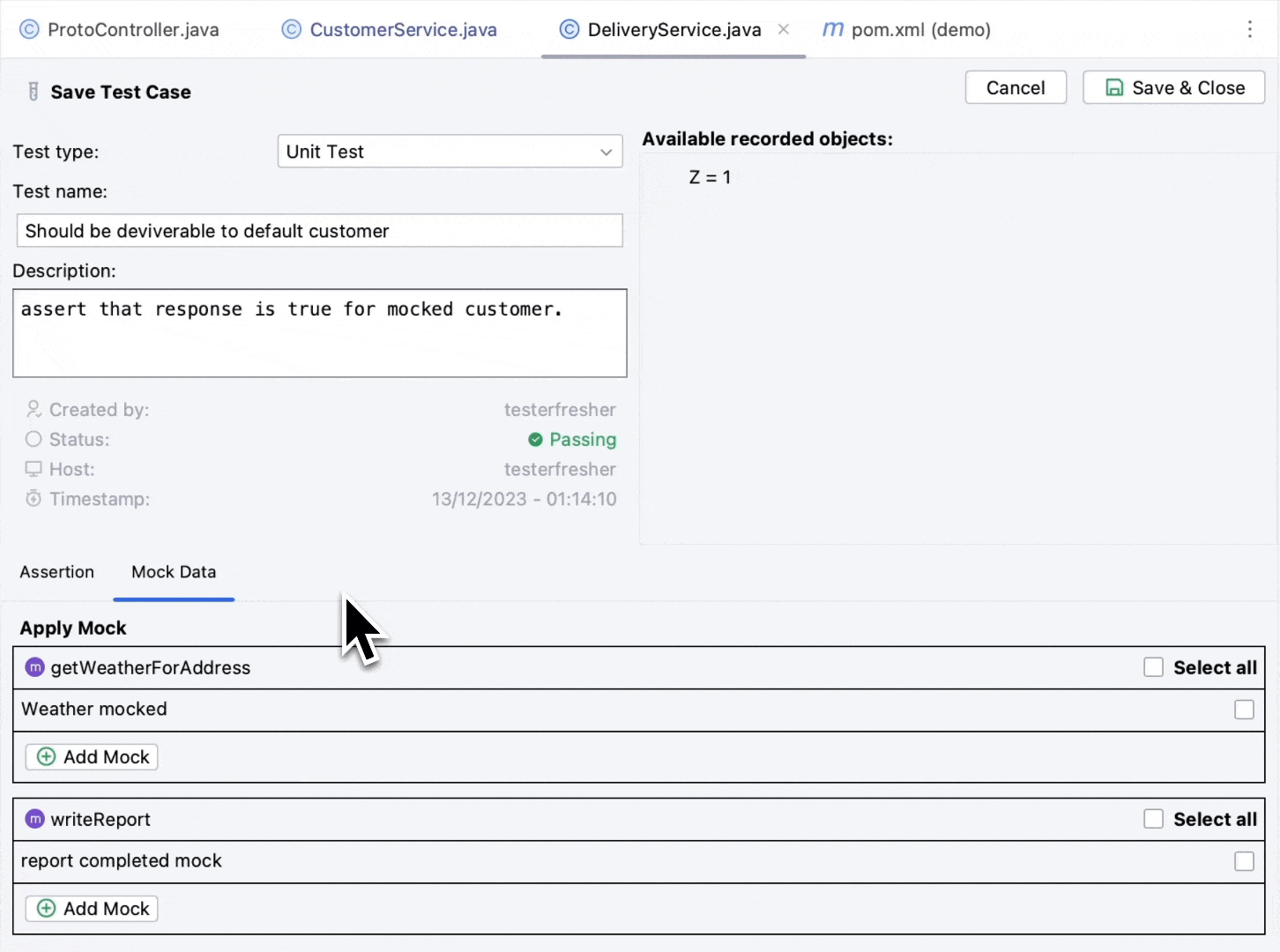Running the Replay Tests in CI
While running the replay tests locally is important during development for rapid feedback, using a CI pipeline enhances the overall development process by automating the testing and validation steps in a controlled and scalable environment. It ensures that the codebase is reliable and meets quality standards before changes are pushed to production.
Adding the dependency
Replays like unit tests
- mock all the dependency calls inside your methods
- bind them with the replays.

unlogged-sdk test runner uses the JUnit Platform test runner to run replays created using the plugin. To execute unlogged tests as mvn test or gradle test or intellij run test.
Start by creating the following test class file UnloggedTest.java in your src/test/java directory
import io.unlogged.runner.UnloggedTestRunner;
import org.junit.runner.RunWith;
@RunWith(UnloggedTestRunner.class)
public class UnloggedTest {
}
Tip
Yep! This class has no methods since the replay tests will be based on src/test/resources/unlogged/<ClassName>.json files.
Execute mvn test or gradle test to execute the tests from CLI.
Integration testing on Springboot application
For Springboot applications, customize the above tests as follows:
@RunWith(UnloggedTestRunner.class)
@ComponentScan("<spring.application.package.name>")
@EnableAutoConfiguration
@PropertySource(
value = {"config/application.yml", "config/application-dev.yml"},
factory = UnloggedRunnerTest.YamlPropertySourceFactory.class)
@TestPropertySource({"classpath:application.properties"})
@WebAppConfiguration
public class UnloggedRunnerTest {
public static class YamlPropertySourceFactory implements PropertySourceFactory {
public YamlPropertySourceFactory() {
}
@Override
public PropertiesPropertySource createPropertySource(String name, EncodedResource encodedResource) throws IOException {
YamlPropertiesFactoryBean factory = new YamlPropertiesFactoryBean();
factory.setResources(encodedResource.getResource());
return new PropertiesPropertySource(encodedResource.getResource().getFilename(), factory.getObject());
}
}
}
Remember!
Remember to update <spring.application.package.name> to your package name, config/application-dev.yml to the config files you want to use. UnloggedRunnerTest.YamlPropertySourceFactory.class is for supporting yml files. Specify your test application properties inside ApplicationProperties.class.
WebAppConfiguration annotation is needed if there are any methods in starting class of the project that configure services, that cannot be enabled for integration tests. For example some configuration for Swagger or API monitoring. If these configurations are in a seperate file, then the annotation is not needed.
With this, unlogged test runner will create as instance of the spring application context and execute the tests based on the beans created by spring.
Reports
Running mvn test or gradle test will generate xml reports that are stored at ${basedir}/target/surefire-reports
